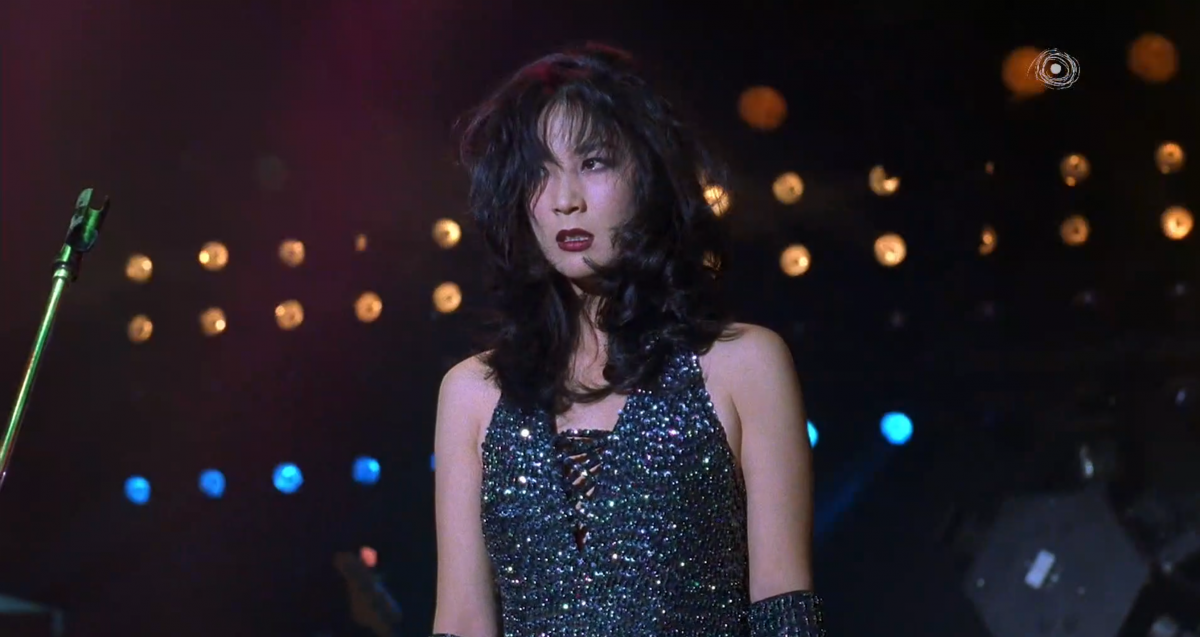
Makdong’s stint in the South Korean army is over, and he’s returning home by train. As if on cue, he spots a pretty woman being hassled by three young thugs. He intervenes, and the woman escapes. Makdong, still in his camos, is intent on teaching these tough guys a lesson.
The problem is, the guys beat the shit out of him, knocking him down, kicking him, and bloodying his nose. Some hero. In fact, Makdong will spend the whole first half hour of Green Fish bleeding from the nose and mouth because Makdong keeps on picking fights and losing them.
To make matters worse, the home he returns to—a small farm set up on the outskirts of Seoul, yet in full view of the city—is not the one he remembers. His mother now cleans houses. His sister has taken a menial job. His brother is crippled by a neurological disorder. Makdong wants to help but is ignored, so often one suspects he’s an apparition á la The Sixth Sense. But he’s real.
Makdong takes a job in the city as a parking attendant and catches the eye of a crime kingpin. On whose arm is, of course, the woman from the train, a nightclub singer named Mi-ae.
Green Fish was originally released in 1997. It’s the first film directed by Lee Chang-dong, who has become one of Korea’s premier filmmakers. Film Movement is releasing in 4K restorations a number of his titles, including Peppermint Candy (1999), Oasis (2002), and Poetry (2010). Mr. Chang-dong has real cinematic chops. The brilliant colors of his city scenes snap. His restless camera captures stunning 360-degree shots. His blocking and editing are artful (the final crane shot is a knockout). He expresses Makdong’s alienation in his staging—mirrors and windows and thresholds are everywhere—and makes the distinction between the simple farm life that is being squeezed out by the sinister city.
Han Suk-kyu plays Makdong as a sad sack with innocent, wide-eyed wonder. His face is trusting even as he’s being rousted by hoodlums. Mi-ae (played by Shim Hye-jin) has his number. She’s there when he auditions for the big boss, Mr. Bae Tae-kon (Moon Sung-keun). He asks Makdong, “Got any skills?” and Mi-ae giggles, “Running’s your thing.”
Makdong prevails, sort of, growing a spine and acquiring a new wardrobe. He gets better at defending Mi-ae’s honor, which, to quote Groucho, is more than she ever did. Lee Chang-dong’s film is clearly inspired by Scorsese’s Goodfellas. It has those moments of coded etiquette (the ritual of asking for a light is a challenge and a blessing). It honors the protocols of “families,” maybe too literally: the head guy is called Big Brother. Its action is explosive. Fists fly just because someone looked at you the wrong way.
But there’s a goofiness about this film that can be found generally in Korean cinema. Are they serious or satirical? Is Green Fish an homage or critique of the genre? Poor Makdong spends so much time bleeding and getting up from the floor that one wonders if Green Fish is deadpan slapstick. Moreover, the gangster genre, as is horror, is fodder for a first film. Both are the choice of filmmakers getting into the game: they provide visceral thrills, sex, and violence, often above a new director’s pay grade. Does Lee Chang-dong out-Scorsese Scorsese? You decide.
________________________
Green Fish. Directed by Lee Chang-dong. 1997. Restored and re-released by Film Movement. On digital formats, DVD and Blu-Ray. 111 minutes.
